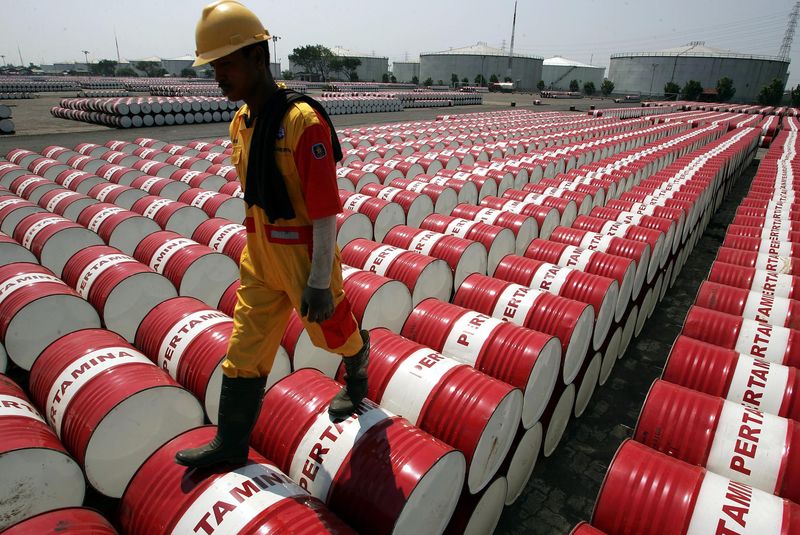By Meeyoung Cho
SEOUL, Oct 14 (Reuters) - Crude oil futures slipped on
Wednesday, extending losses from the prior session when an
International Energy Agency report said the market would stay
oversupplied for at least another year.
Front-month Brent LCOc1 for November delivery edged down
15 cents at $49.09 a barrel as of 0119 GMT after it ended at
$49.24 per barrel, down 1.24 percent, or 62 cents on Tuesday.
U.S. crude CLc1 edged down 5 cents at $46.61 a barrel
after settling 0.93 percent, or 44 cents, lower at $46.66 a
barrel.
Crude futures rose 15 percent in early October but have
since fallen back by almost 10 percent as global production
continues to outpace demand and concerns over China's slowing
economy prevail despite the strong import figures published this
week.
"Prices should remain low...the main reason for that is
because global supply and demand for crude did not change much
over the past few weeks or even months. We are still in
oversupply," Daniel Ang, an investment analyst at Phillip
Futures Pte Ltd.
"Considering that you know we are looking for possible
worsening oversupply coming from Iran..this puts the whole
situation a lot more bearish."
ANZ said in a morning note: "Commodity prices were weaker
overnight. Base metals, iron ore and crude oil all fell as the
impact of the relief rally starts to wane."
A global oil supply glut will persist through 2016 as demand
growth slows from a five-year high and key OPEC members maintain
near-record output, said the International Energy Agency, even
as low prices curb supply outside the producer group.
ID:nL8N12D17P
U.S. shale production is expected to fall the most on record
in November, extending a nationwide output decline into its
seventh consecutive month, according to a forecast on Tuesday
from the U.S. Energy Information Administration.
The number of North Dakota oil wells that have been drilled
but not fracked rose to an all-time high in August of almost
1,000, as producers delayed bringing them online as long as
possible in hopes that crude would rebound.
Global offshore oil production in ageing fields will fall by
10 percent next year as producers abandon field upgrades at the
fastest rate in 30 years, in the first clear sign of output cuts
outside the U.S. shale industry, exclusive data shows.
As the oil market remains over supplied, Saudi Arabia failed
to attract offers for additional oil cargoes for loading in
October, industry sources said.
Venezuelan Oil Minister Eulogio del Pino said on Tuesday
that eight non-OPEC countries have been invited to an Oct. 21
technical meeting of oil experts from the Organization of
Petroleum Exporting Countries and non-OPEC countries in
Vienna.
